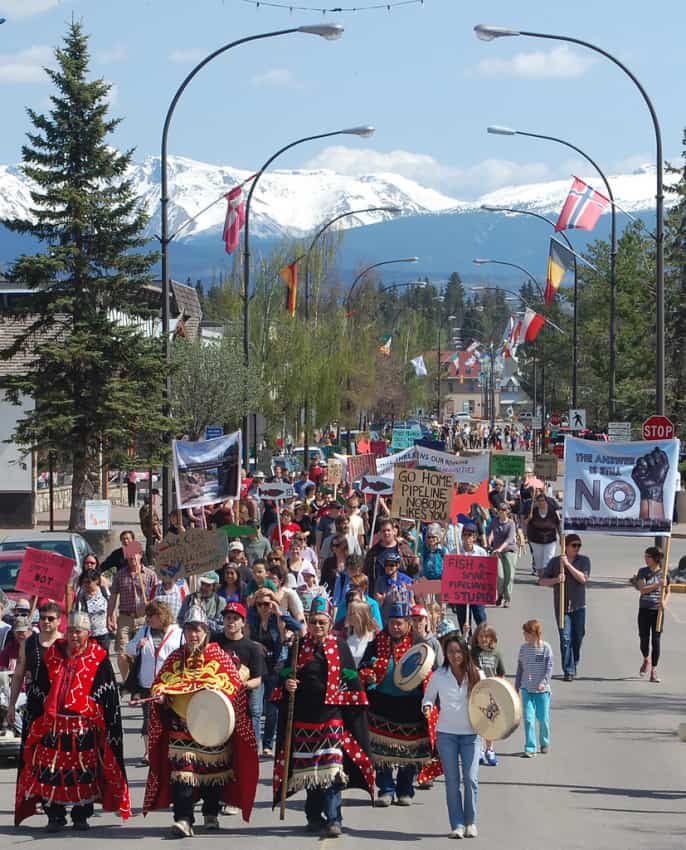The Unist’ot’en Camp of the Wet’suwet’en Nation recently issued an international call for solidarity in their fight against a Coastal GasLink pipeline. Indigenous students at the University of Saskatchewan have responded to that call with a statement.
On Jan. 13, an exclusion zone was put in place by the Royal Canadian Mounted Police on traditional Wet’suwet’en land in British Columbia. This checkpoint has been criticized by a coalition of hereditary chiefs and the BC Civil Liberties Association for the “improper and unlawful” cutting of access to land.

The U of S Indigenous Students’ Council released a statement on Jan. 23 condemning the RCMP’s actions and standing behind the Wet’suwet’en Nation as they “protect their traditional territory.” The traditional land of several Indigenous groups has been the centre of an ongoing conflict over the Coastal GasLink Pipeline for over a year.
ISC president Tyler Buffalo says releasing this statement was important to the group because as Indigenous people, they have to look out for one another.
“In my teachings, it’s very important to come together as one,” Buffalo said.
He says that advocating for the sovereignty of Wet’suwet’en Nation is not only about protecting Indigenous peoples now but also those of the future.
“It’s about the next four years. That’s really what the protests that our people tend to do are about. It’s not for us, it’s for the next generations,” Buffalo said.
Gabriel Michael, vicepresident of the ISC, says the statement also condemns the “injustices and mistreatment” of Indigenous people at the hands of the police in all of Canada, not only in B.C.
“It’s still creating a mistrust between Indigenous peoples and the RCMP,” Michael said. “I still find that there is definitely mistrust and a kind of fear, a constant fear.”
Buffalo agrees that the police are “not really a symbol of safety for Indigenous people in the province and nationwide.”
In the statement, the ISC also called for B.C. Premier John Horgan to meet with the Wet’suwet’en Nation, saying that his silence was “disrespectful.”
“Words are just words. We like to see action, [and] we like to see something that’s implemented and carried on,” Michael said.
As of now, Horgan has still not met with the hereditary chiefs of the Wet’suwet’en Nation, although he has made a statement saying that they “are confident that there is a way forward.”
As for other efforts in support of Wet’suwet’en Nation at the university, the U of S Students’ Union is also planning to release a letter of support. The idea was put forward by Arts and Science representative Sarah Foley in a University Students’ Council meeting and received a positive response.
USSU President Regan RattMisponas says that it is not enough to release a letter because it is important to “try our best to advocate in any way that we can.”
“We cannot afford to be bystanders,” Ratt-Misponas said.
Buffalo encourages students to share posts in solidarity and plans to reach out to Indigenous and non-Indigenous organizations and students groups to ask them to stand for Wet’suwet’en Nation.
“There’s strength in numbers,” Buffalo said. “I truly believe that and there’s a lot of people that care out there.”
—
Aqsa Hussain/ Layout Manager
Photo: Creative Commons / Leadnow
Leave a Reply